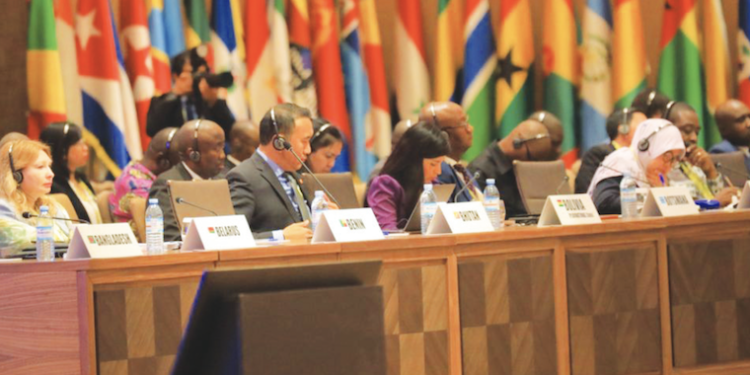By THE OBSERVER UG
NAM Summit delegates in Uganda
The Non-Aligned Movement (NAM) Summit, themed “Deepening Cooperation for Shared Global Affluence,” commenced on Monday, January 15, at Speke Resort Munyonyo.
The Israel-Palestine conflict emerged as a focal point during the summit’s official opening. In October 2023, an armed conflict erupted in the Gaza Strip between Israel and Hamas-led Palestinian militant groups. The hostilities began with a surprise attack by Hamas on southern Israel, the Israeli-occupied West Bank, and the Israel-Lebanon border.
This war has escalated significantly, resulting in over 20,000 fatalities and numerous injuries. On Wednesday, January 17, 2024, Uganda’s Foreign Affairs minister, Gen Jeje Odongo, is scheduled to preside over a committee meeting addressing the Palestine issue. Participants, including 120 NAM member states, 18 observer countries, and 10 observer organizations, are expected to deliberate and formulate their stance on the conflict.
Ambassador Riyad Mansour, Palestine’s permanent observer to the United Nations, commended Uganda for its support of Palestine in the conflict with Israel. He appealed to the international community to intervene in ending human rights violations, establishing a ceasefire, and providing humanitarian aid to Gaza’s residents.
“We seek the complete backing of the movement in our collective endeavor to approach the General Assembly for legislating an end to the war and realizing the inalienable rights of the Palestinian people, including independence and refugee rights,” he stated.
He mentioned Palestine’s endorsement of South Africa’s initiative to approach the International Court of Justice (ICJ) for advisory opinions on genocide. He expressed anticipation for the court’s ruling, due later in the month, and the subsequent collective analysis and decision-making based on the verdict.
Mansour also praised Uganda for its solidarity with the Palestinian people during their ordeal. During the summit, Gen Odongo highlighted NAM’s significance, particularly in light of current global complexities. He reaffirmed the pertinence of the ten-point Bandung Principles, which advocate for human rights, sovereignty, mutual interests, and cooperation.
“Given the multitude of global challenges, including terrorism, climate change, debt burdens, and famine, it’s imperative to collaboratively tackle these issues for the benefit of our members and humanity at large,” he stated at the summit in Munyonyo.







Discussion about this post